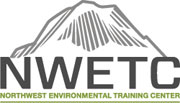|
Description: Becoming a skilled negotiator improves management effectiveness and preserves positive working relationships. The program works from the proven premise that every negotiation involves multiple dimensions of interests and introduces attendees to a straightforward model to plan and engage in negotiations effectively.
Attendees should expect to take part in discussions, exercises, lectures, and mock negotiations that create a dynamic and fun training. The skills learned will be immediately applicable to the next negotiation opportunity.
This two-day workshop is a companion course with our Facilitation and Conflict Resolution courses. What distinguishes this course is its focus on simultaneously advocating for the specific interests while building positive working relationships that can be used in the future.
*Note: This course is especially helpful for teams from the same organization. When colleagues attend the program together the organization benefits not only from these employees gaining skills but also from shared knowledge they can use to ‘team-up’ and support one another or act as an in-house consultant able to give advice to other employees.
Over the course of this workshop, attendees will gain an understanding of the following skills:
• Preparing for a negotiation
• Identifying the complex undercurrents in any negotiation and reacting to them
• Understanding the interests that drive negotiating behaviors and therefore, desired outcomes
• Applying high-impact questioning techniques to uncover each party’s negotiating interests and using that information to create solutions
• Creating solutions that preserve and enhance relationships
• Negotiating collaboratively and effectively by applying tools and techniques to speak with clarity and confidence about what you want
• Avoiding impasse and creating positive solutions
• Communication skills for effectively negotiating for your interests
• Confidence in your ability to self-advocate
• An overview of the significant theories, principles, and concepts current in the field of negotiation
• How to use negotiations to build strategic partnerships that are essential for success in a team-oriented environment or an outside provider/client relationship
• Gaining the ability to create non-judgmental forums for discussion and problem solving "This was one of the most beneficial trainings I have attended. It was focused, and there wasn't a sales pitch. Michael...took the time to tailor the class to the needs of the attendees. Thank you for offering these classes." Anonymous, December 2013 "Michael was a great instructor. His knowledge, expertise, and experience in both mediation and the environmental field give him great credibility and useful examples." J. Driver, April 2013 "Very relaxed and "safe" environment was created very quickly. Mike definitely is experienced in the "art" of negotiating and relayed very useful key points for us to think about and incorporate in our situations." J. Evered, May 2013 "The instructor is excellent. Well versed in topic and uses a variety of media and presentation styles which keeps audience engaged." D. Lindley, August 2013
|
Additional Discounts for registering related courses: There is an additional $50 discount when registering for either Conflict Resolution Skills for Environmental Professionals OR Facilitation Skills for Environmental Professionals when they are offered in the same week. The two registrations must be made at the same time to get the discount. There is an additional $100 discount when registering for all three classes when they are offered the same week. Registration for all three classes must be made at the same time.
*Reduced tuition is available for Native American tribes, government employees, nonprofits, students and NAEP, NEBC, NWAEP members. You may register onlince or by calling the Northwest Environmental Training Center at (425) 270-3274.
Please wait to receive a course confirmation email, roughly one month prior to the class, before making any travel arrangements.
Intended Audience: • Professionals who are trusted to work independently resolving challenging, non-routine situations,
• People who must possess the ability to advocate for your organization’s interest and, at the same time, build positive future relationships with the other people in the negotiation, or
• Those who are progressing in their career toward assuming the above leadership responsibilities.
Past attendees: Agency executives, mid-managers, regional biologists, species management experts, land managers, scientific team leaders, cross-agency coordinators, citizen participation experts, supervisors, environmental specialists, and regional directors/supervisors.
Continuing Education Units: 1.30 CEUs
Course Topics
Module 1: Situation Awareness
• Definitions
• Styles of Responding to Conflict
• Their Frame of Mind
• Issues and Interests
• Mastering the Story that Lays Behind the Scenes
• The Reasons People Don’t Change
• Understanding the History (Back Story)
Module 2: Preparing to Negotiate
• Anger Arousal Cycle
• Preparing to Manage Conflict
• Defining Desired End States
• BATNA
• Defining Mutually Beneficial Options
• Acceptance Speech Test
• Negotiation Prep Sheet
Module 3: Negotiator’s Tool Box
• Building Trust
• Making Durable Agreements
• Exerting Leadership
• Working With Values
• Communicating Effectively
• Asking Golden Questions
• Using Brainstorming
• Impasse Breakers
• Controlling the Last Question
• Writing Tight Agreements
| |
About the Instructor
 Mike Fraidenburg designs and delivers facilitation services ranging in format from small technical and task-oriented workgroups to large-audience conferences. He has extensive experience facilitating science intensive issues and, as a certified mediator, using interest-based bargaining techniques to create consensus in his facilitations. His facilitation experience includes international scientific review panels, discovery and coordination meetings of regional groups (e.g., data managers, programmers, statisticians), and program evaluations and strategic planning. Mike has been facilitating online meetings to collect citizen participation input, create consensus opinions of advisory groups, conduct strategic and operational planning, and for training other facilitators in online facilitation techniques.
What to Bring
Please bring a pen or pencil, and notepad if you would like to take notes (you may also choose to take notes in your book). Lunch will be on your own, but drinks and snacks will be provided throughout the day.
Billing Information
In order to guarantee a space in a course, the tuition must be paid in full TWO WEEKS before the first day of the course by either check or credit card. State and government agencies paying with a purchase order are allowed payment under the two-week time frame if a copy of the purchase order is received by NWETC.
If You Need to Cancel
Cancellations*-
With 31 or more days notice, we will offer a 100% refund or credit towards a future course. The credit is good for one year and may be applied to any course.
- With 30-8 days notice, we will offer a course credit towards a future course. The credit is good for one year and may be applied to any course.
- With fewer than 8 days notice, there is no course credit available
*Please note that attendee replacement is welcome at any time
Disability Accommodations
Disability Accommodations:To request disability accommodations, please contact us at info@nwetc.org or 425-270-3274 at least 30 days prior to the event.
|










